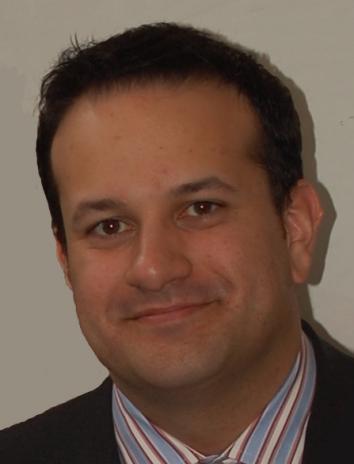Marriage may be contracted in accordance with law by two persons without distinction as to their sex.
This is the proposal Ireland’s voters will be considering in a May referendum on same-sex marriage. Recent weeks have seen an increasingly positive light being shone on LGBTQ life in the Catholic nation. Last week, Health Minister Leo Varadkar, one of Ireland’s most prominent politicians, came out, making him the country’s first openly gay Cabinet minister. And only days before, Gaelic football legend Valerie Mulcahy did the same, becoming the first big-name female Gaelic Athletic Association player to come out publicly. Varadkar and Mulcahy hope to build support for Ireland’s LGBTQ citizens ahead of the vote.
If the referendum passes, marriage equality would be a historic step for Ireland, which until very recently was one of Europe’s most socially illiberal countries. It wasn’t until 2011 that same-sex couples could enter into civil partnerships or until 1993 that homosexual relations were decriminalized. This was largely because Roman Catholic leaders, who wield an arguably outsized influence over policies and practices in Ireland, have been vocal in their opposition to LGBTQ rights. However, in recent years a series of scandals have eroded public trust in the church, reducing the scale of one of the most significant obstacles in Ireland’s ongoing quest for equality.
Of course, this isn’t to say that one referendum will end deeply entrenched anti-LGBTQ discrimination in Ireland. Far from it.
Judging from stories that recently appeared in the Irish media, LGBTQ stigma is still very much alive and well in Ireland. In one story, teachers share fears that they could be fired for being gay because the religious ethos of schools that are run by the Catholic Church, as most are, excuses them from having to follow certain parts of the equality laws. LGBTQ educators therefore feel the only remedy is to lead a sort of double life. Another piece suggests that this reality is underpinned to a large extent by a much broader, though also more implicit, tolerance for stigmatizing LGBTQ men and women in their personal and professional lives.
In other words, Ireland hasn’t yet jumped to total liberalism, and in many ways it continues to show that anti-LGBTQ prejudice doesn’t have to be overt to be toxic.
But things are getting better. A recent poll showed that while some of the people surveyed expressed “reservations including concerns about same-sex couples adopting children,” 77 percent said they plan to vote in favor of marriage equality in May. Pro-LGBTQ shifts in attitudes at the political level may be making their way into the realm of public consciousness. Marriage equality would be a critical development, and rather than bringing about some sort of Armagayddon, same-sex marriage would signal to Ireland’s LGBTQ citizens that they, too, are entitled to equality in their own country.
